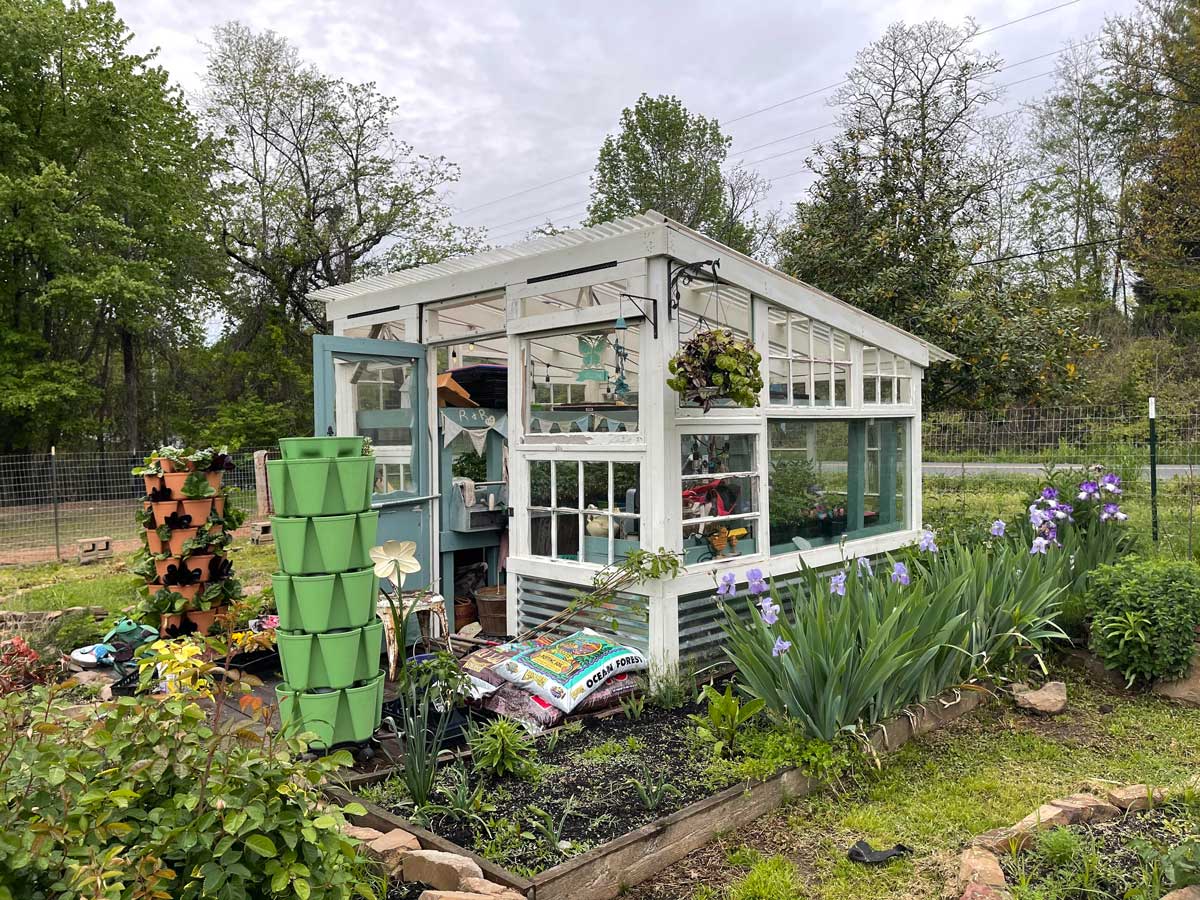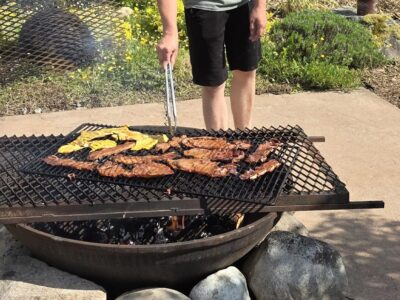In today’s episode, I’m talking with Jessica Sowards from Roots & Refuge Farm and we’re discussing foolproof methods that you need to build into your gardening plan. When gardening overwhelm sets in, having these methods available means there’s less stress to be had!
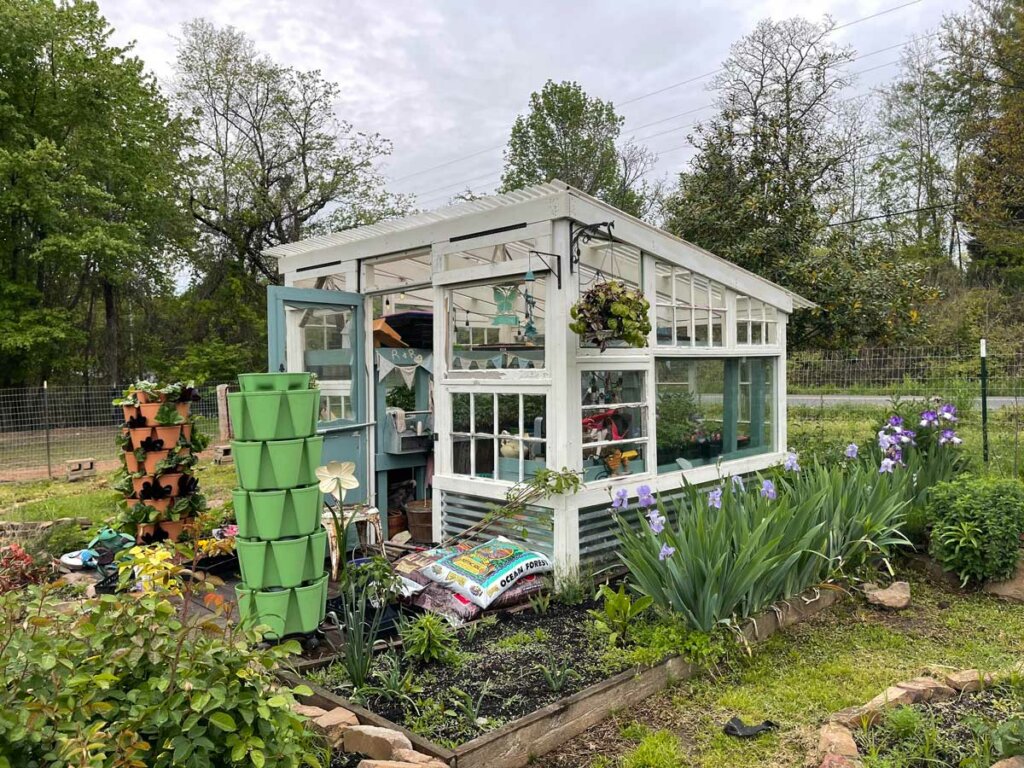
Jessica and Jeremiah Sowards (aka “Jess” and “Miah”) have been gardening, homesteading and raising their six children on a small farm in Arkansas. They’re excited to announce they have just purchased land in North Carolina and are getting ready to head east for big dreams to come to fruition.
It’s their desire to “create a place at the table” through their YouTube channel, where others can follow along on their journey, learn some great gardening tips, and maybe have a laugh (or cry) together.
Today we’re discussing how to beat the gardening overwhelm that sets in for every gardener each year (there are concrete steps you can do at planting time to build in motivation!), and connecting over smelling our tomato plant leaves while salivating for big juicy tomatoes to be ripe on the vine.
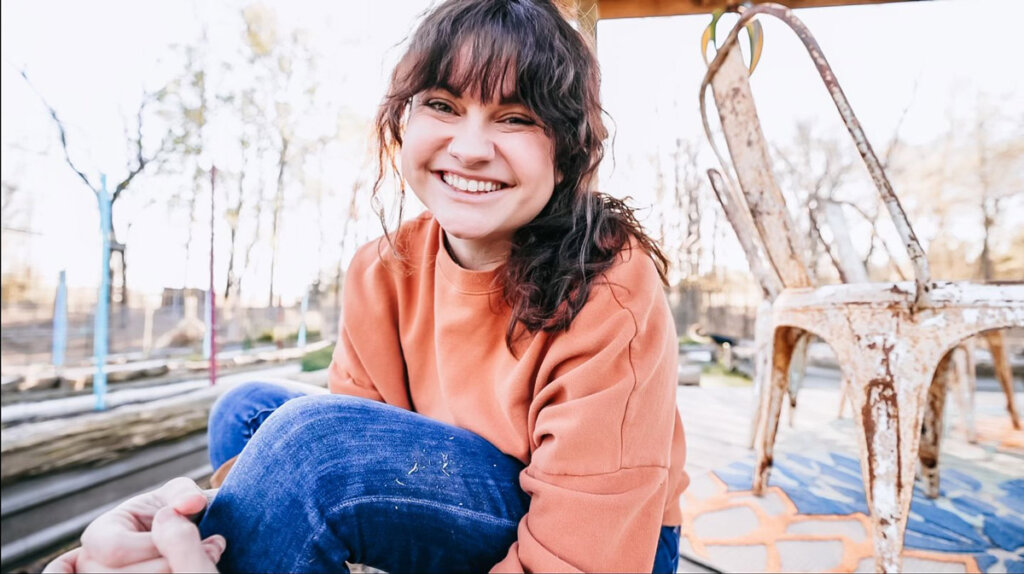
Table of Contents[Hide][Show]
In This Episode:
- How Jess creates a garden that is a place of beauty and enjoyment.
- Jess shares how she’s a “reformed lazy girl” and managed to transformed her life into an expression of worship through creating a beautiful garden, which is now her favorite place to be in the world.
- Why Jess got into heirloom gardening.
- Elements that make a garden space your favorite place to be.
- How they built their reclaimed window frame greenhouse and how they use it to extend the growing seasons.
- How God uses weeding in the garden to weed out areas of my life that need work.
- Verse of the week: Philippians 4:6-7
- Connect with Jess on YouTube at Roots & Refuge Farm.
- On Instagram @roots_and_refuge
- Grab her book, The First-time Gardener: Growing Vegetables: All the know-how and encouragement you need to grow – and fall in love with! – your brand new food garden.
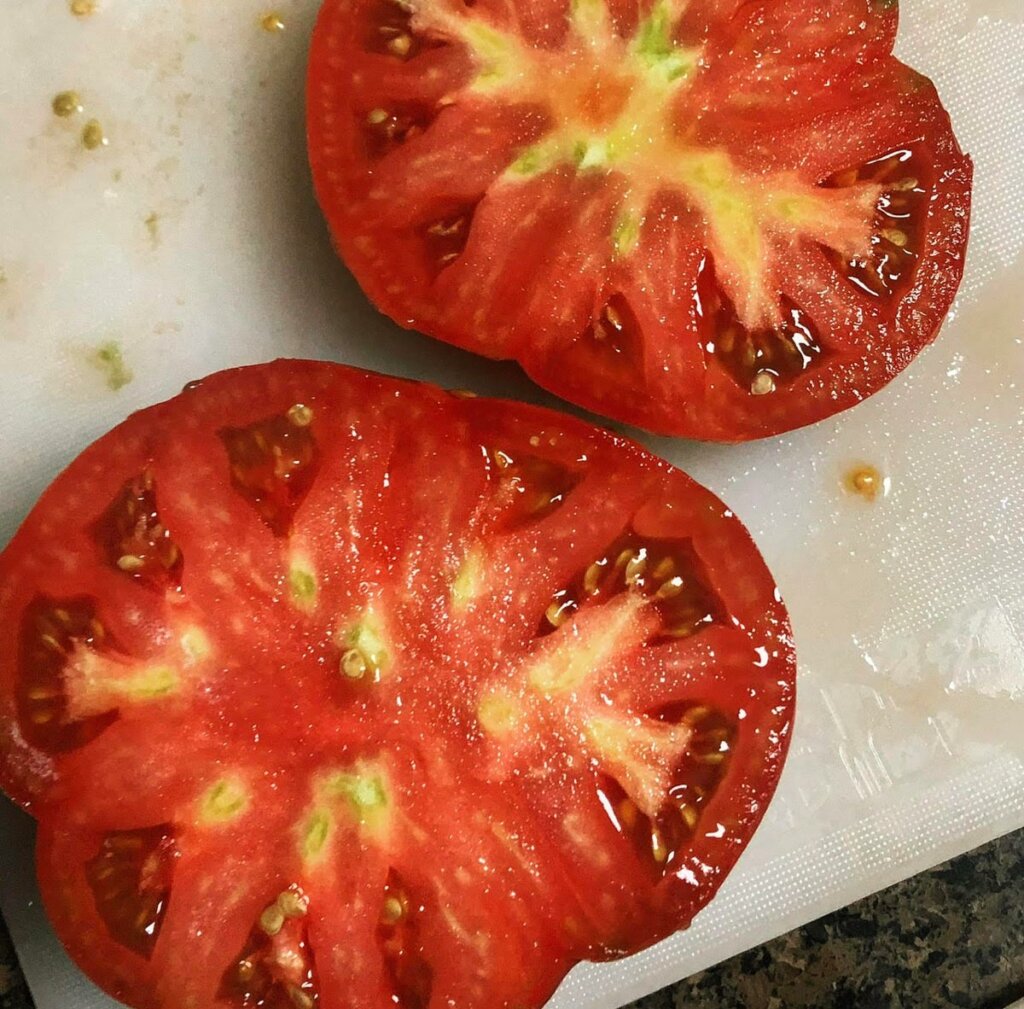
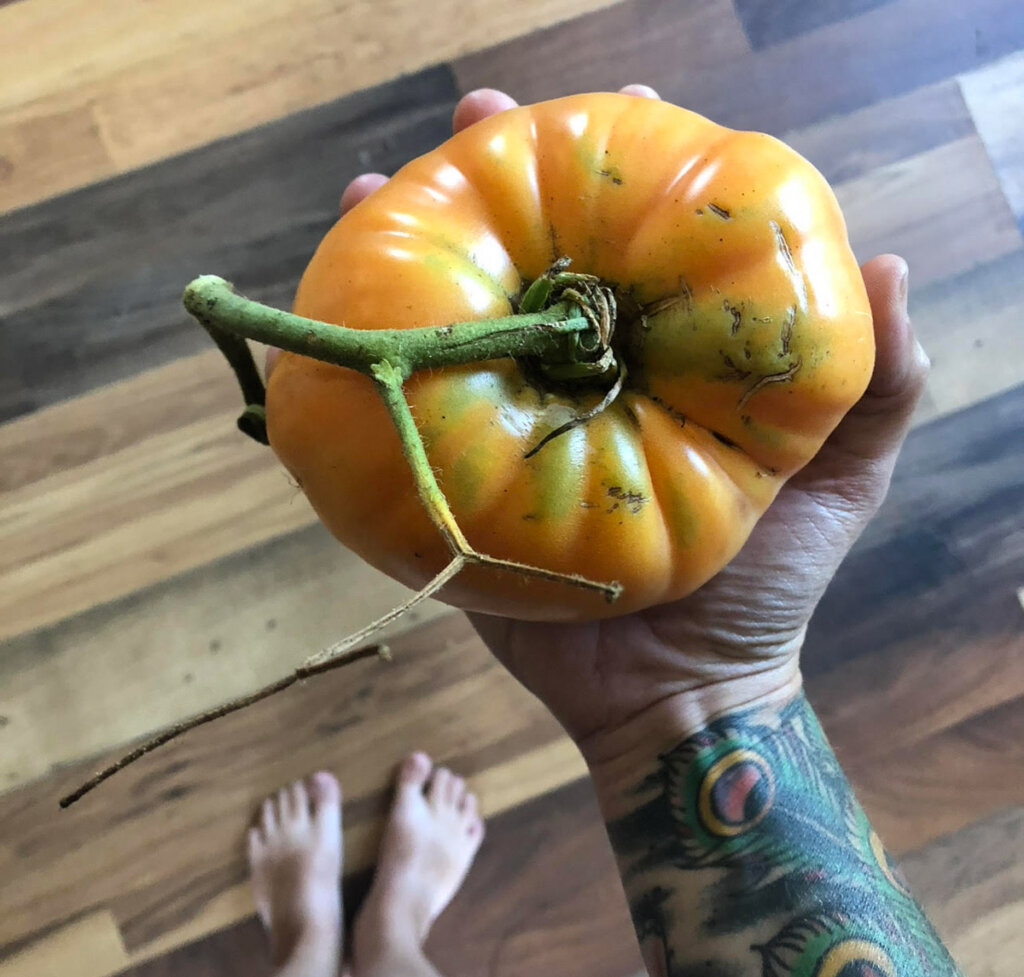
[fusebox_transcript]
Interested in hearing from more homesteaders? Check out these interviews.
- Aquaponic Gardening & Raising Tilapia with VW Family Farms
- Tips for Homesteading Off-Grid & Life w/out a Fridge or Running Water
- A Military Wife’s Look on Homestead Preparedness
- 7 Self-sufficiency and Simple Living Lessons from the Amish
- The First Time Homesteader & Things I’d Do Differently
- Urban Homesteading – Tips for Small Space Self-Sufficiency
- Cooking on a Wood Stove
- Biggest Homestead Mistakes We Made & What to Avoid
- What to do When Homesteading Gets Tough
- How to Buy a Homestead – What to Look For
- Eating a Year of Hand Harvested Food with Alexia
- The Homestead Documentary Project
